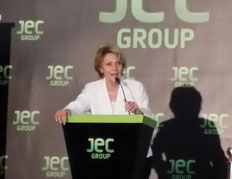
The competence of the Asian market for composites cannot be undermined. Asia is forecast to represent 53% of the global composites market in the next five years, according to the JEC Group, a composites industry organisation with a network of more than 250,000 professionals. This forecast was slightly higher, albeit close to an earlier projection by research firm Lucintel, which pegs Asia’s market share at 49.5% by volume in 2019. In 2014 alone, JEC said the Asian composites market was valued at US$32.2 billion or about EUR26 billion.
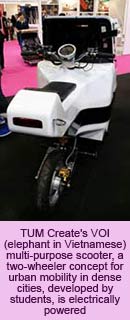
At the conclusion of the 7th annual session of JEC Asia Composites Show & Conferences, held 17-19 November 2014 in Singapore, the Paris-based JEC said the success of the show indicates continuous growth in the region’s industry.
During the show, key developments such as “green” transportation (eg., electric cars or taxi cab); the high penetration of composites and reallocation of parts production in the aerospace industry; or new product concepts such as boats set in a few minutes, were featured. Other important highlights included a talk by four-time Formula 1 champion, Alain Prost, who tackled high-tech composites in automotive, as well as his anecdote on his experience and challenges encountered in a highly competitive environment of the race car industry.
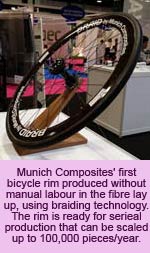
Frederique Mutel, JEC Group President/CEO, commented that Prost’s talk emphasised the importance of being surrounded by a good team and a common faith to succeed, which is comparable to how the composites Industry has also evolved in a fierce market.
The show also hosted conferences on Asian market trends, segmented into Production, Solutions, Oil & Gas, Aeronautic, and Carbon; and which were facilitated by more than 30 speakers from Asia Pacific and Europe.
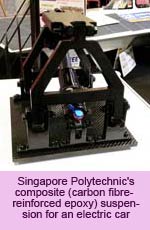
The JEC team likewise organised 250 pre-arranged business meetings between exhibitors and end-users buyers such as Airbus Defense, Boeing, BASF, Delta Aircraft, Louis Vuitton, Mitsubishi Chemicals, to name a few.
In addition, there were 11 national pavilions for France, China, Thailand, UK, Spain, Singapore, South Korea, Australia, Germany, Japan, and the US; each country represented their composites advances to the international crowd of more than 50 countries.
As well, 11 innovation awards were given out. Chosen as the country of honour was Singapore. Four innovation awards were given to Singaporean laureates in the Compression Moulding, Life Achievement, Academic, and Student categories.
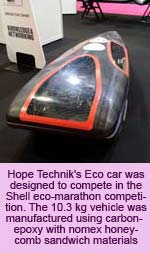
In line with this, select projects of Singaporean universities were showcased at the Live Demo Zone and the Innovation Corner with pioneering composites parts. These include a race car presented by the National University of Singapore’s Formula Society of Automotive Engineering (NUS FSAE); SunSPEC 3 solar car from Singapore Polytechnic; Electric EVA Car, which is a taxi for tropical megacities, with a monocoque structure made entirely of carbon fibre-reinforced polymer. The car is developed by TUM Create: a joint research programme between Germany’s Technische Universität München (TUM); and Singapore’s Nanyang Technological University (NTU).
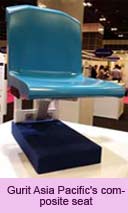
Meanwhile, two Composites Tours were organised to showcase Singapore advances in composites. Visited sites include the Hope Technik’s composite workshop. A few examples of applications were seen such as modification of a pick-up truck for firefighting purposes, components for various applications within the industry as well as moulds for composite manufacturing. The Republic Polytechnic was where visitors were introduced to the ARCH (Aerospace Hub), a 1,500-sq m facility that provides opportunities to study aircraft structures, systems, and engines.
The next JEC Asia show is slated for October 20-22, 2015 in Singapore. For more information, visit the event website at www.jeccomposites.com
(PRA)




























